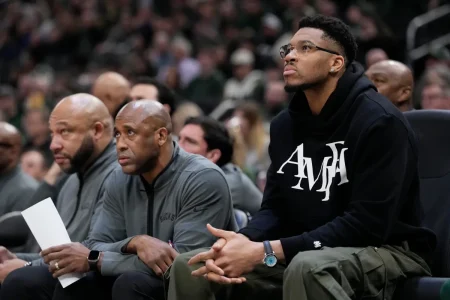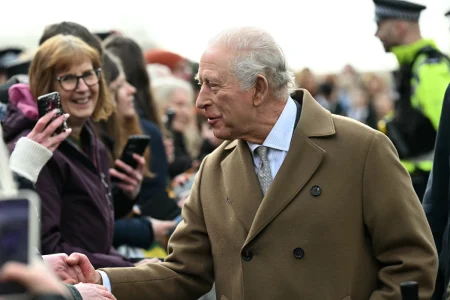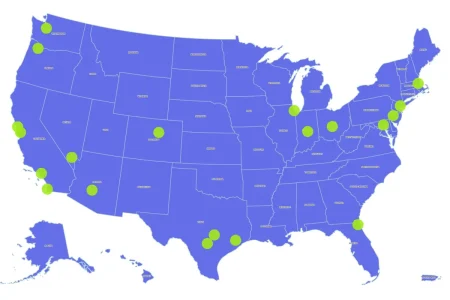Jerry Greenfield Bids Farewell to Ben & Jerry’s After 47 Years, Citing Broken Promises from Unilever
In a heartfelt announcement that has sent ripples through the business world, Jerry Greenfield has decided to step away from Ben & Jerry’s, the iconic ice cream company he co-founded with Ben Cohen nearly five decades ago. His departure marks the end of an era for a brand that became known not just for its delicious frozen treats but for its unwavering commitment to social activism. Greenfield’s resignation comes with serious allegations against parent company Unilever, which he claims has undermined the independence that was guaranteed when they acquired Ben & Jerry’s in 2000. “It’s with a broken heart that I’ve decided I can no longer, in good conscience, and after 47 years, remain an employee of Ben & Jerry’s,” Greenfield stated in an emotional message shared by Cohen on social media. “This is one of the hardest and most painful decisions I’ve ever made.”
The story of Ben & Jerry’s began in 1978 when two childhood friends opened a small ice cream shop in a renovated gas station in Burlington, Vermont. What started as a modest business venture quickly grew into something much more significant—a company that prided itself not just on creating premium ice cream with quirky flavors and chunky mix-ins, but on standing for something greater. Throughout its independent years, Ben & Jerry’s gained recognition for incorporating social justice initiatives into its business model, addressing issues from climate change to racial inequality. This mission-driven approach made the 2000 acquisition by Unilever a cause for concern among many loyal customers who worried the corporate giant might dilute the company’s activist spirit. To address these fears, Greenfield and Cohen negotiated what they believed was a bulletproof agreement to preserve the company’s social mission.
According to Greenfield, that agreement included specific provisions designed to protect Ben & Jerry’s independence and ability to advocate for social causes. “For more than twenty years under their ownership, Ben & Jerry’s stood up and spoke out in support of peace, justice, and human rights, not as abstract concepts, but in relation to real events happening in our world,” he explained in his statement. The unique merger agreement supposedly “enshrined our social mission and values in the company’s governance structure in perpetuity.” This arrangement allowed Ben & Jerry’s to maintain its activist identity while operating under Unilever’s corporate umbrella—creating what many industry observers considered a pioneering model for how mission-driven companies could be acquired without losing their soul.
While Greenfield did not specify exactly what actions or decisions prompted his resignation, his statement makes clear that he believes Unilever has failed to honor its commitment to Ben & Jerry’s independence. The timing is particularly noteworthy as it follows several years of tensions between the ice cream maker’s independent board and its parent company. In 2021, a major conflict erupted when Ben & Jerry’s announced it would stop selling its products in Israeli-occupied Palestinian territories, citing inconsistency with the company’s values. Unilever subsequently sold its Ben & Jerry’s business interests in Israel to a local licensee who continued distribution in the territories—a move that the independent board opposed and attempted to block through legal action, ultimately unsuccessfully. This incident highlighted the complex power dynamics between the socially conscious ice cream brand and its corporate owner.
Greenfield’s departure raises serious questions about the viability of arrangements that attempt to preserve a company’s mission and values following acquisition by a larger corporation. His statement that “it’s profoundly disappointing to come to the conclusion that that independence, the very basis of our sale to Unilever, is gone” suggests a fundamental breakdown in the relationship between the founders’ vision and corporate realities. For decades, Ben & Jerry’s has been held up as a rare example of a company that successfully balanced profit with purpose, showing that businesses could take strong stances on controversial issues while remaining commercially viable. Greenfield’s resignation calls into question whether this model can truly survive within a multinational conglomerate structure, regardless of contractual safeguards intended to protect a subsidiary’s independence.
As news of Greenfield’s departure continues to reverberate through business circles and among loyal consumers, the future direction of Ben & Jerry’s remains uncertain. Will the company continue its tradition of outspoken advocacy without one of its founding voices? Can the social mission that defined Ben & Jerry’s for nearly half a century survive without the guardianship of its creators? What does this mean for other mission-driven companies considering acquisition by larger corporations? While these questions remain unanswered, one thing is clear: Jerry Greenfield’s resignation represents more than just a personnel change—it symbolizes a potential inflection point in the ongoing conversation about corporate social responsibility and the challenges of maintaining authentic values within global business structures. For the man who helped build not just a beloved ice cream brand but a model for ethical business practices, walking away after 47 years speaks volumes about the depth of his conviction that something fundamental has been lost.














